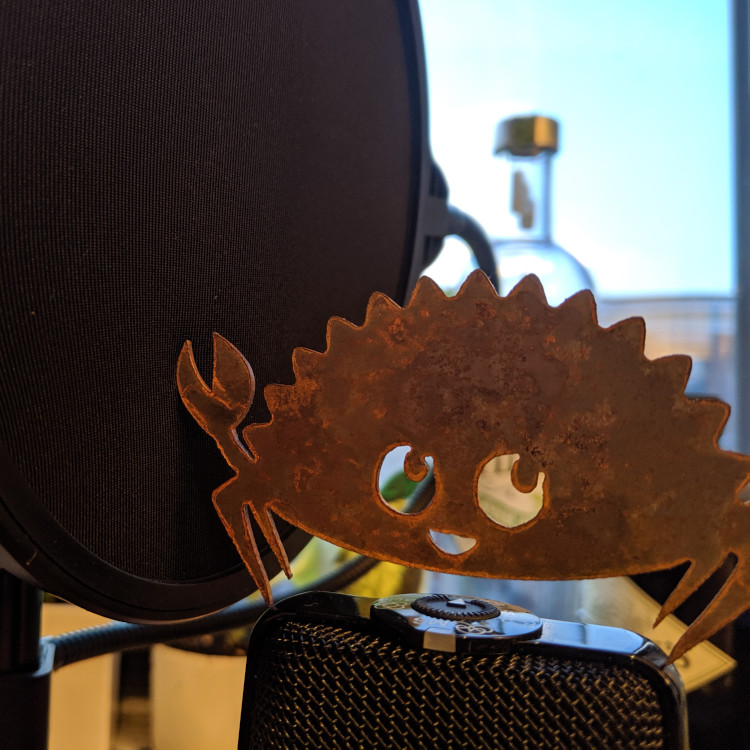This Week in Rust - Issue 340
Episode Page with Show NotesNell Shamrell-Harrington: Hello everyone! Thank you to all who listened to the first episode last week, it’s great to bring you another one this week for This Week in Rust Issue number 340.
I’m Nell Shamrell-Harrington, lead editor of This Week in Rust, and an engineer on the Rust team at Mozilla. Every week this podcast highlights a few of the stories that week’s issue of This Week in Rust.
While the newsletter and the podcast are usually published on Tuesday, due to the U.S. holiday on Monday we are publishing on Wednesday this week.
Let’s dive into this week’s highlights:
One of the more interesting stories this week is a blog post by Dennis Duda on his blog seri.tools. He figured out how to compile Rust binaries for the Windows 98 Second Edition operating systems and more. Even if you don’t anticipate running on Windows 98 SE at any point in the near future, it’s a fascinating lesson in backporting Rust for an older operating system — and also in understanding how Rust builds for different targeted operating systems. Definitely check it out!
In related news, Stephen Sherratt wrote a fascinating blog post about creating a Rust program which produced a Nintendo Entertainment System binary that could run Conway’s Game of Life in an NES emulator. It is fascinating to see all the different operating platforms that Rust can create programs to run on.
Something I enjoy is following multi-part blog posts as the progress week after week. This week we feature the final post in the “Writing Python inside your Rust code” series by Mara Bos — which is a great series — and the first post in the “Zero to Production” series by Luca Palmieri on building production-read APIs in Rust. I’m looking forward to more posts from that series in the future.
If you have ever wondered how to organize your Rust tests better — Andre Bogus has written just the post for you. The post called, appropriately, “How to organize your Rust tests” takes you through when to assert, dual-use doctests, how library crates can lead by example, verifying that things fail the right way, testing randomly, and more. Give it a read to level up your Rust testing skills.
If you are not sure how to use macro rules or need a review, Sven Assman has written a post called “rust macro rules in practice.” It is the first in a series called “practical rust bites” that showcases tiny pieces of Rust taken out of real projects. Give it a read for a very clear introduction and practical explanation of macros in Rust.
We have several videos in this week’s issue — including “Bringing WebAssembly to the web with WASI - the Web Assembly System Interface” by Lin Clark and “Microsoft’s Safe Systems Programming Languages Effort” by Dean Bryen and Ryan Levick. There are several other great beginning videos on Interation by Tim McNamara and even more videos in the newsletter.
Want to get started contributing to Rust Open Source projects? The Call for Participation section features issues from pjama, mdbx-rs, ruma, time-rs, and http-types. Click on them and take a look, hopefully you’ll be motivated to work through them and get that pull request in!
The RFC — or request for comment — process is at the core of how the Rust community works. There were no RFCs in final comment period — or fcp — this week, though there are several tracking issues and pull requests to look at. Each of these is labeled “disposition: merge” — which means they are in pre-fcp or fcp and are likely on their way to being merged in. Check them out — it’s a great way to get to know the internals of the Rust programming language.
No new RFCs were proposed this week.
As the COVID-19 pandemic continues, the vast majority of Rust meetups are now held online. Most if not all of these are open to anyone to attend, no matter where they live. This includes meetups in Montreal, Poland, London, Berlin, Johannesberg South Africa, Auckland New Zealand and, my hometown, Seattle, WA. Joining these meetups is an excellent opportunity to meet Rustaceans from across the world, I hope you take advantage of that.
And that’s all for this podcast — there are many more items in this week’s newsletter, make sure to read it to keep up with all the awesome things going on in the Rust world.
This Week in Rust is edited by myself, Andre Bogus, and Colton Donnelly. This week’s newsletter’s contributors include, using their GitHub usernames, m_ou_se, LukeMathWalker, mgrachev, and gwilczynski! Thank you so much to everyone who contributes to This Week in Rust!
I will be back next week bringing you more of the wonderful news from the wonderful world of Rust. Please stay safe and take care, everyone!
